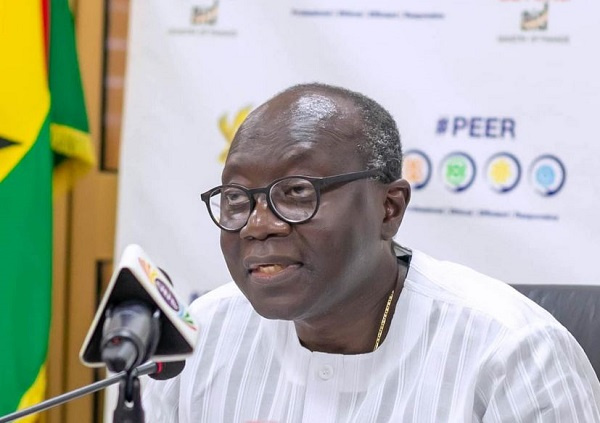GHANA needs a viable plan that protects the interests of investors and also guards against excessive borrowing to be able to regain the trust of investors in the government as a responsible borrower.
The plan must be prioritised, workable and implemented as soon as practicable to repair the broken trust occasioned by the recent domestic debt exchange programme (DDEP), experts on finance and the economy have said.
A chartered accountant and insurance expert, Dr Daniel Seddoh, and an economist, Prof. Festus Ebo Turkson, said in separate interviews that regulators of the capital market also needed to show a little more concern for investors in the push to restore investor confidence.
Dr Seddoh, who is a former Chief Executive Officer of the National Pensions Regulatory Authority (NPRA), added that the country needed ‘men of honour’ in sensitive positions to help engineer public trust in the financial sector and the economy as a whole.
“We are a developing country and so not many people understand the issues of finance and investments.
“So, we need people in good positions to be men of honour and pull everyone along,” he said ahead of the Graphic Business/Stanbic Bank Breakfast Meeting today at the Labadi Beach Hotel in Accra.
“Also, we pass laws to compel the Social Security and National Insurance Trust (SSNIT), the tier two pension fund managers and insurance laws to part away with money. After that you go through yet another regulation to compel these institutions to invest that money in government securities but when this government failed in repaying the debt, the regulator could not intervene and intercede on behalf of the investors.
“The regulators have lost their essence and trust has broken down completely,” he said, noting that he would throw more light on the subject at the breakfast forum.
Forum
Dr Seddoh and Prof. Turkson are panellists at the quarterly event that will be on the theme: “Domestic Debt Exchange Programme (DDEP): Lessons and Implications for How you Invest.”
It is aimed to solicit the views of experts on how to restore confidence as well as maintain and grow the investment culture among the public post-DDEP.
It will be chaired by the Managing Director of the Ghana Stock Exchange (GSE), Abena Amoah.
Speakers
The Director General of the Securities and Exchange Commission (SEC), Rev. Daniel Ogbarmey Tetteh, will speak on the role of investments in the national development agenda and its benefit to investors while Prof. Turkson will speak on the triggers of the DDEP, lessons and strategies to prevent a repeat.
Dr Seddoh, a non-Executive Director of Databank MFund Limited, Kasapreko Company Limited and the Ghana Deposit Protection Corporation, will speak on The Future of Investments and how to regain public trust.
The DDEP, which is a prerequisite to accessing support from the International Monetary Fund (IMF), led to the swapping of about GH¢87 billion short-dated bonds that had an average coupon rate of 19 per cent for long-dated ones with yields averaging nine per cent
T-bills
Following the DDEP, Treasury (T) bill rates have crashed from about 35 per cent to trade at 18.52 per cent on March 20, the lowest in more than eight years.
In spite of the decline, demand for the bills have been strong, with offers being oversubscribed week in, week out.
Dr Seddoh, who is a former acting Managing Director of the Universal Merchant Bank (UMB), said while the current high appetite for the securities was positive, it should not be misconstrued to mean that people still trusted the government.
It is because people do not have an alternative, he said, pointing to the lack of competing investment instruments and banks’ unreadiness to lend due to high risks of default.
“Also, inflation is above 50 per cent but the T-bill rate is about 18 per cent. That is a negative return of more than 30 per cent and which investor will take this,” he asked.
Consequently, he said it was critical for the government to regain the trust of investors by instituting pragmatic measures.
Responsible borrowing
Prof. Turkson, for his part, called for measures to reduce the fiscal deficit and the debt build up to help inspire confidence in investors.
He said as rational beings, investors wanted to be assured that their funds were judiciously used on projects that were self-financing to make repayment easier.
He also called for a national policy to rationalise social interventions, noting that the current structure allowed politicians to spend on initiatives that might not be sustainable and not aligned to the national development plan.



